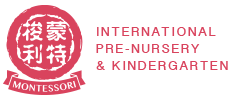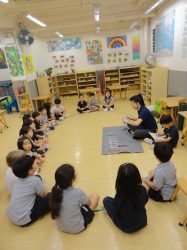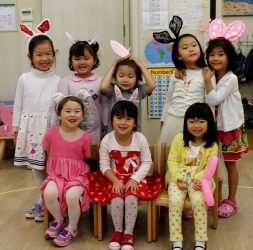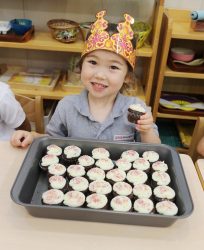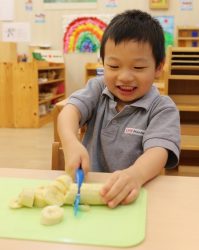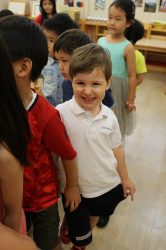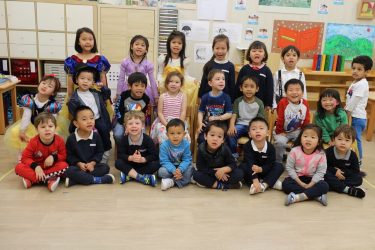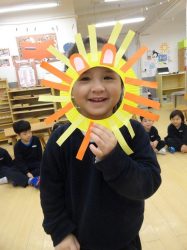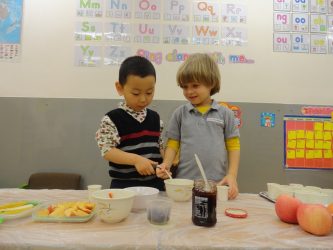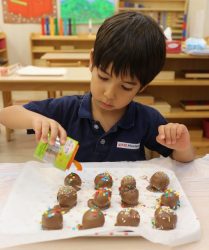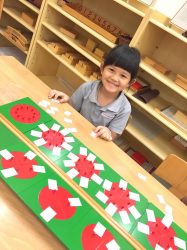
This is our core Montessori program for children from 3 to 6 years old. We provide a solid academic foundation for students to prepare for their elementary years in local or international schools.
Apart from academics, our prepared environment also hones the child’s social and emotional intelligence:
-
- self discipline
- increased independence derived from new skills and competencies
- knowledge of appropriate and socially accepted grace and courtesy
- patience and the ability to share
- respect for others
- a willingness to abide by rules and to create social order

